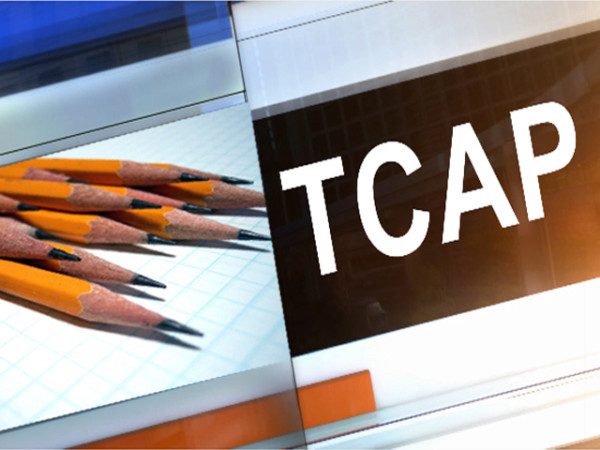by Cathyrn Stout —
Only one in 10 Memphis students in grades three through 12 performed at or above grade level in math and English on state-mandated standardized tests in 2021, compared to about one in five in 2019.
Following national trends, Shelby County Schools scores on the state’s standardized test, known as the TCAP, declined nearly across the board last school year, with the largest subject-area decline in math. Only 6.6% of students in grades three through 12 performed at or above grade level in math, compared to 22.4% in 2019.
Students in grades three through five showed the biggest slide, according to the data. From 2019 to 2021, their English and math scores fell by 17 percentage points from 28.4% at or above grade level in those subjects to 11.4%.
The exam wasn’t administered in 2020, so the 2021 scores offer one of the first statewide snapshots of how Tennessee students are weathering the global pandemic that continues to disrupt education.
Statewide results released on Aug. 2 showed a decrease in proficiency of 5 percentage points since 2019. District-level scores were released Wednesday.
Shelby County Schools data includes district-authorized charter schools but does not include scores for students in the Achievement School District. Those scores are calculated separately. There are 27 schools in the Achievement district, which is a cluster of Tennessee’s lowest performing schools that receive state intervention, and 25 of those state-run schools are in Memphis and the other two are in Nashville.
Achievement School District scores reveal that only 4.5% of third graders in those schools performed at or above grade level in English, compared to 14.1% of Shelby County Schools third graders and 22.4% of Metro Nashville Public School third graders.
In a statement, Education Commissioner Penny Schwinn said, “While we expected declines in student proficiency, the data from our statewide assessment creates an opportunity to make more informed, strategic decisions and investments that are best for accelerating the achievement of our students.”
Shelby County Schools officials attributed their students’ declines to the “COVID-19 slide” and acknowledged that some of the low scores on state exams may be linked to Superintendent Joris Ray’s decision to exclusively offer virtual learning most of last school year until he reopened classrooms in March following pressure from the state.
“We know that he made the difficult decision last year to close schools because definitely we wanted to ensure that our students were healthy and safe. With that, we realized that virtual education was never intended to replace in-person, K-12 learning,” said Angela Whitelaw, deputy superintendent of schools and academic support. “However, considering the COVID-19 circumstances, we adopted innovative ways to deliver instruction.”
After Memphis schools reopened in March, about two-third of local students chose to continue to learn remotely. Many students entered school buildings for the first time for a few days at the end of the spring semester to sit for the state exams.
“It’s certainly possible that the alternative learning medium, in combination with stress associated with the pandemic, could adversely affect students and their performance on standardized tests and academic achievement as a whole,” said Memphis psychologist Mekel Harris.
Nationwide, Black, Latino, and Native American students saw bigger standardized test score declines last year than their white peers and peers of Asian descent. Schools in high-poverty areas also saw bigger slides on standardized tests than schools in affluent areas.
In Shelby County Schools, 76% of students are Black and 56% come from economically disadvantaged families, according to the state, making the district particularly vulnerable to the pandemic’s disruptions.
To help with learning acceleration this year, the district hosted summer learning academies where about 9,000 students received extra instruction before the new school year. The district is also adding more tutoring options, and reducing the student to adult ratio in grades kindergarten through second as part of its early literacy focus.
Danette Stokes, president of one of the local teacher’s unions, the United Education Association, said that teachers welcome more interventionists, tutors, and smaller student-teacher ratios to help close the gaps.
She added that teachers spent the weeks before the test focused on student’s social and emotional needs to get them “back into some sense of normalcy.”
“TCAP data is just a snapshot from one day in a student’s education,” said Stokes. “Testing does not reflect the true measure of everything that impacts our students.”



